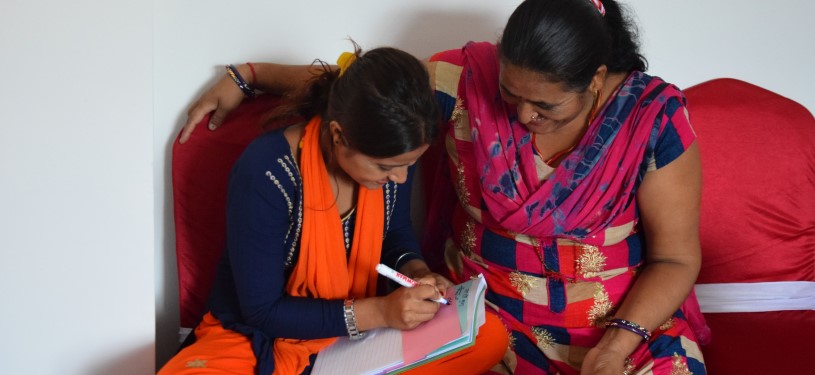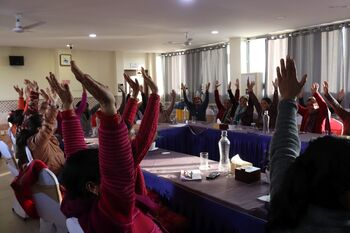
19.12.2024
Women reporters for justice
Women in Nepal are encouraging other survivors of the civil war to talk about what they have experienced. That also helps them to heal from their own experiences.
The ten-year armed conflict in Nepal officially ended 18 years ago when a peace agreement was signed. However, the country is still suffering from the repercussions of the civil war: the process of dealing with the events of the war is making slow progress and many victims and their families are still waiting for justice.
Working together to ensure the past is not forgotten
One way of promoting reconciliation in society is to talk about what happened and this is the approach taken by the ‘Justice Reporters’. Equipped with a microphone and a notepad, women who were victims themselves go out into communities and encourage other survivors to talk about their experiences. The women write down and spread the stories. As storytellers, they thus take centre stage in the process of dealing with the past – without being confined to their role as victims. ‘After working as justice reporters, we changed our tears to power,’ one of the women says.

Giving conflict survivors a voice
During their training to become ‘Justice Reporters’, the women are assisted by an organisation called The Story Kitchen. The Deutsche Gesellschaft für Internationale Zusammenarbeit (GIZ) GmbH is supporting the project on behalf of the German Federal Ministry for Economic Cooperation and Development (BMZ). The women undergo training sessions to develop skills in community work and sensitive interview techniques. This has given a voice to 150 survivors. Shaileshwori Sharma is a peace advisor at GIZ in Nepal. ‘Our work is emotional because we create the space to talk about what was deliberately silenced. Many people have never had the opportunity to share their feelings’, she explains.
The project in Nepal is just one example of how GIZ is involved in the Civil Peace Service (CPS). The CPS, which is celebrating its 25th anniversary this year, works across the globe to resolve conflicts by non-violent means. GIZ is one of nine organisations that sends peace experts to crisis and conflict regions and support the people there in their fight for justice, human rights and peace. The approaches they take are many and varied, ranging from dialogue, mediation and media work through to measures to come to terms with the past and psychosocial support. GIZ contributes more than 100 international and more than 130 local experts in a total of 22 countries.